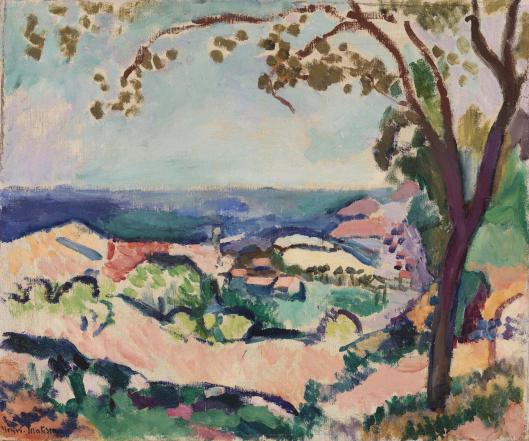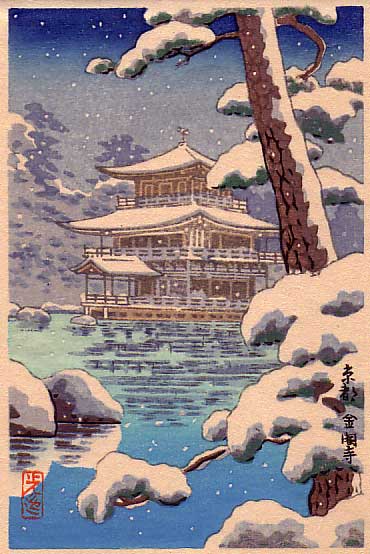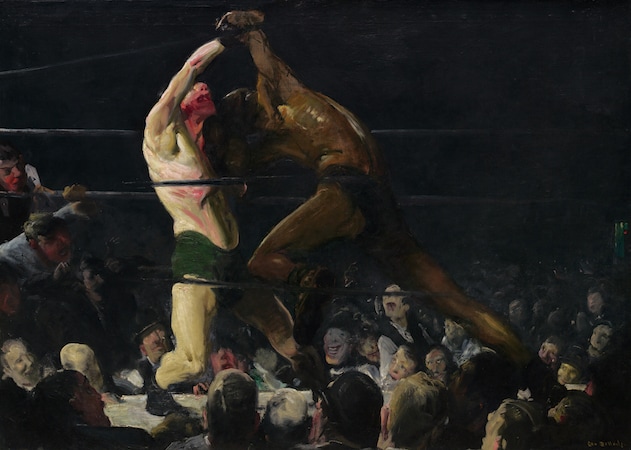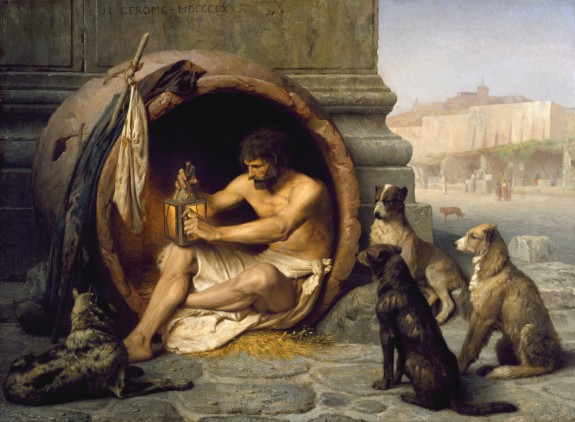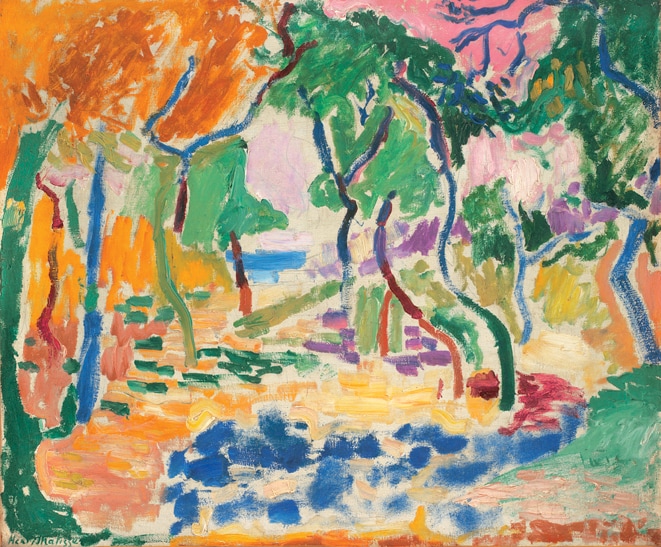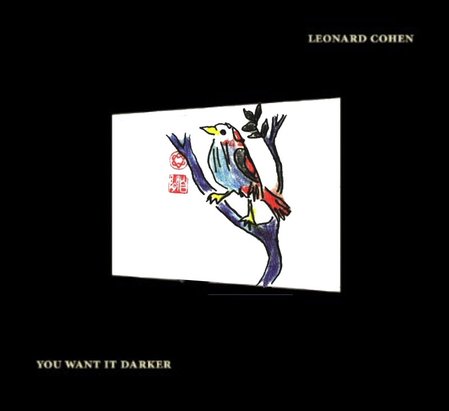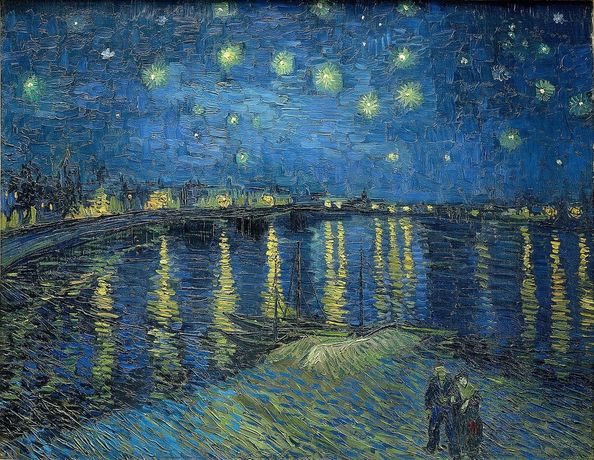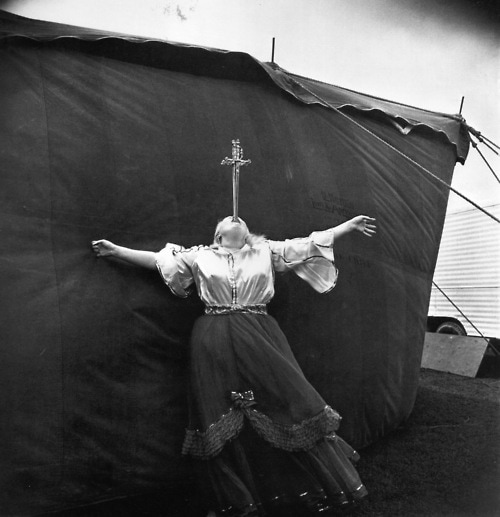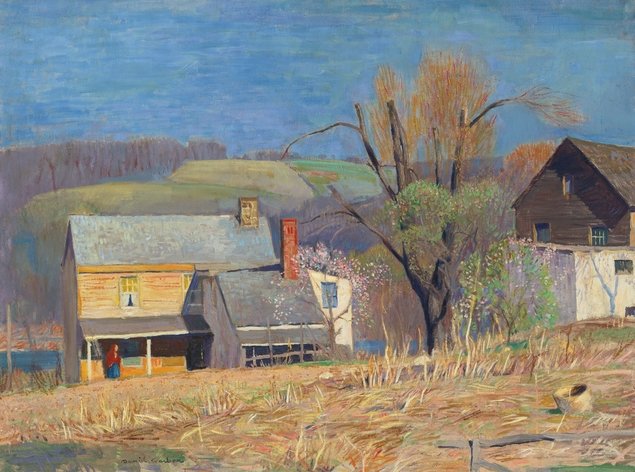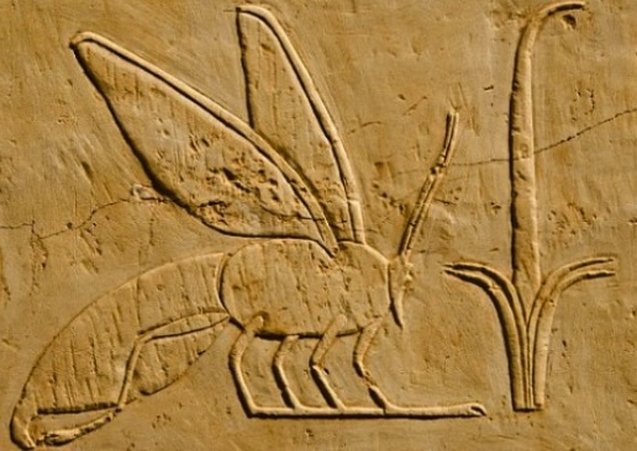|
La Mer Vue à Collioure, 1906
Here is the sea as Henri saw it, and we have seen it, too, driving along les corniches, the cobalt water scissored with sailboats, white triangle cutouts on a papier couleurs sea. Matisse's violent vertes, trees and bushes, fields of jaune, cerise, violet; the houses in town, their wild paint combinations: vermillion/lime, gentian/terra cotta, pomegranate/mauve. . . . If you let your eyes go out of focus, you could be in front of a vendeur de crème glacée: citron vert, abricot, ananas, menthe. Boule after creamy boule. The whole world dissolves around the edges, would melt, if you'd let it. Barbara Crooker This poem first appeared in Barbara's book, Les Fauves, C&R Press, 2017. Barbara Crooker is the author of eight books of poetry, including Les Fauves (C&R Press, 2017) and The Book of Kells (Poeima Poetry Series, Cascade Books, 2019). Her work has appeared in The Bedford Introduction to Literature, Ted Kooser's "American Life in Poetry," and on The Writer’s Almanac. www.barbaracrooker.com
1 Comment
Kogarashi, Winter Wind Warns
Walkers hurry scurry striding autumn streets, Indian summer clutched in morning shiver sweaters. Eyes glance north, checking. Maple heat of flames slope above Kyoto, ablaze while the chill seeps downhill. The noren concealing the entryway garden quivers in a northern breath that exhales, ‘kogarashi’ in yellowing bamboo ears. On forested ridges, leaves transmute into silver and gold tremors, like living Kinkakuji, like shining Ginkakuji. Braziers lighted echo sylvan autumn colours. Bitter gust winter warns. A leaf falls. Victoria Crawford A writer/poet, Victoria Crawford is retired in Chiang Mai, Thailand, but she has lived in many countries. In her poetry, she loves to share the world and her joy in it with the reader from the sands of the Rub al Khali to the coastal redwoods of the Pacific Northwest. Painters and poets have been revealing the world for thousands of years going back to the caves of Lascaux and yet there is so much that is still not known. How to Do Art In other words, don’t let it do you. By which we mean we are as much a part of ourselves as art is to itself. Notwithstanding the psychological realm — the realm with much to say about nothing at all. Take the artist on a painfully inartful day—the morning is cloudy but the afternoon is sunny, naturellement, the mailman arriving at 1:15pm before the recycling (sundry cans and bottles, crumpled cardboard pieces) endeavours to be disposed of, evacuated into a urine-coloured, unprepossessing vat next to the more prominent but filthier receptacle whose plastic lids have been disabused of their function (spring, summer, fall and winter), the weather given its full and natural right to subsume the banal and odourific contents therein. Still, there is much toiling to be done. There is the afternoon that wanes—painful reminder of the blinding transience of life. But at the end of it all, do we dare believe? Has that narrative that had defined our lives been finally subsumed? Do we assume that we are to be bestowed entry into THE GRAND SOCIETY OF INFINITE ACCOLADES? No (the very word that we have been tasked to elude). Dinnertime. The producing of dinner can be thought of as art, of course, as food is nearly always relied upon as being the substrate to consciousness. Moreover, the term “culinary arts” has repeatedly been seared into the dogma of our digestive existence. Chicken cutlets, one evening. Linguine with sautéed vegetables, the next. As we muster the undead. Paolo Cornacchia Paolo Cornacchia lives along the shores of the Chesapeake. He has previously been published in Literary Orphans. More information about him can be found here:http://paolocornacchia.space Diogenes' Lamp
"A child has beaten me in plainness of living." - Diogenes Laertius of Sinope Little Sita walked to the edge of the sands slowly. She watched the ebb and swell of the cerulean waves in quiet melancholy. Everywhere she turned the ghostly outlines of beasts and brutes followed. She lingered in expectation, waiting, watching, as the sea-gulls dipped and soared in loud symphony. Everywhere she looked, an unquiet greeted her for the search that would not end. The earth had offered up its wisdom to a child. But she had chosen the pocketbook world of painted apricots, instead of partaking of the real ones. It was not a fishing expedition. There was no enchantment left. In her hands she held an old oil lamp. It was an earthly lamp. She carried it wherever she went. She had looked at it often. When lit, it glowed, with a flickering light of the rise and fall of blue embers, gauntly gashing. It was a leftover from a bygone past of a former Deepavali, oh-so-long-ago. An odd forgotten curio which she had retained, as a much wanted heirloom, one she could never let go. Daily she nursed her treasure, lighting the lamp, as the apocryphal story had foretold, attributed oh-so-long-ago to Diogenes Laertius the Cynic. Everywhere he went, his prophetic lamp of ancient wisdom had accompanied him in his philosophical wanderings. Centuries past, when the world was a place for fables and legends, a man of virtue leading a frugal life, had vainly roamed through the streets of Sinope, in search for an honest man, in search for the speaker of truth, a truth he would never find, even when the sun of burnished gold was brightly flaming, and the moon of pearly silver was asleep. He poured scorn wherever he went. For who but a "mad dog" or a "wise fool" would light a lamp in broad daylight? The last laugh. Some odysseys would never find an end. Through dim alleyways Sita crawled. She would wipe her lamp clean and polish it with an old rag, till it glowed brightly. But try as she might and however harder she scrubbed, she was compelled to accept with fine distinction, that no magic genie would mysteriously appear through the bowels of the lamp, spreading red sparkle and aura. Not as Aladdin's had illustrated, when summoned. Only some lamps were predestined to greater glories it seemed. Others were not inter-connected to higher reckonings. One day a beautiful Goddess appeared, drenched in the mantle of the earth. She glowed in a brilliant green luminescence. Sita could not tear away her gaze, not having seen such a grand vision before. The specter shimmered in overlapping flux. The earth was alive! She stared strangely, overcome by the mystical sight. "Come little one, follow me if you seek the truth," the vision spoke to the little girl, taking her gently by the hand, "Nature is being conquered by concrete and asphalt." Sita trembled in silent cry, filled with awe as she watched her thin and bony fingers protruding sharply, like broken cracked twigs, from under her thin translucent skin, being softly wrapped in the pale porcelain of the Goddess' delicate palm. "Will you light my lamp?" Sita asked the strange lady, filled with trepidation at her bold request. The Goddess did not reply. Infused instead with a comely grace, she led the quivering girl up the nearby mountain side, to the Tree of Resource and Research. It spread invitingly. Beckoning. "Why do you deceive the child so?' mocked the Tree. 'What's the use of a lamp with no bearable planet to light? What's the use of a lamp when honesty as a paramount virtue is no longer the order of the day?" "You lie!" replied the Goddess unafraid, "We must go to the land where the green grass grows. It is that abode we seek." The sun had slid into the ocean waters leaving a slash of coral peach sky. Tepid twilight was descending. Sita curled herself on the cold pavement into a fetal position as she slept. The streets were her home. The plain speaking Diogenes who had met with philosophers and kings, had lived in a tub, a simple wooden barrel, on the bare pavements, surrounded by street dogs. He had taken pleasure in it, preferring his frugal lifestyle to one of artificiality and pretentious luxury, as depicted in the frescoes and art works of Waterhouse and Jean-Leon Gerome. As she slept little Sita dreamt of her lamp extinguished. It was always the same dream. She would trade it for postage-stamps or quails' eggs. It was not for her corner of the earth. Rekha Valliappan Rekha Valliappan holds an M.A. in English Literature from Madras University and an LL.B. from the University of London. Her passion is fiction writing. Her prose works are more recently published or forthcoming in Indiana Voice Journal, Friday Flash Fiction, Third Flatiron, Scarlet Leaf Review, 100 Voices Anthology, Intellectual Refuge and Boston Accent Lit which adjudged her the 2nd Prize winner in their Annual Short Story Contest 2016. She is an avid reader of mysteries, fiction and literary classics. She lives in New York where she stays actively involved in community service. Born in Bombay she looks to Asia for inspiration. Https://silicasun.wordpress.com LANDSCAPE AT COLLIOURE, 1905
"From the moment I held the box of colours in my hands I knew this was my life. I threw myself into it like a beast that plunges towards the thing it loves." Henri Matisse This hillside's the shade of grape soda, lawn an ooze of electric jaundice, and the sky's a violet slither. The red, blue, and green trees are dancing, supple and sinuous, and the leaves are singing, a riot of light. He squeezed out red-orange like plastic explosives. Painting is an act of belief. Barbara Crooker This poem first appeared in Barbara's book, Les Fauves, C&R Press, 2017. The last line is taken from the artist's own words. Barbara Crooker is the author of eight books of poetry, including Les Fauves (C&R Press, 2017) and The Book of Kells (Poeima Poetry Series, Cascade Books, 2019). Her work has appeared in The Bedford Introduction to Literature, Ted Kooser's "American Life in Poetry," and on The Writer’s Almanac. www.barbaracrooker.com Leonard Leaving
Do not say the moment was imagined - L. Cohen After I heard that Leonard Cohen died, I walked by the river, thought how no one held Sad up to the light the way he had. I sang Hallelujah softly, threw a dark stone into the water deep as his voice, saw a blue lotus flower float on a wave, watched it move unwaveringly away. Tricia Marcella Cimera This poem was inspired by listening to Leonard Cohen's last album, You Want It Darker. A slightly different version is displayed this month by the City of Aurora. Tricia Marcella Cimera will forever be an obsessed reader and lover of words. Look for her work in these diverse places: Buddhist Poetry Review, The Ekphrastic Review, Foliate Oak, Fox Adoption, Hedgerow, I Am Not A Silent Poet, Mad Swirl, Silver Birch Press, Stepping Stones, Yellow Chair Review, and elsewhere. She has a micro collection of water-themed poems called THE SEA AND A RIVER on the Origami Poems Project website. Tricia believes there’s no place like her own backyard and has traveled the world (including Graceland). She lives with her husband and family of animals in Illinois / in a town called St. Charles / by a river named Fox. Starry Night Along the Rhone
A night with blues, violets, greens, of citron yellow slashes but no black. Dots, flares and misshapen fragments-- palest sparkles pulled where the mirror faces its infinite self on water. And the brush wanders, sputtering. A gas lamp’s green blues pink-violet to blue-violet amid cobalt and forget-me-not past ink’s lap on wood, once the town ebonizes beyond a yellow-green lantern as dreams swim. Jonathan Yungkans Jonathan Yungkans is a Los-Angeles-native poet, writer and photographer with an intense love for the sea and local history. He is currently an MFA Writing student at Califonia State University, Long Beach. His works have appeared in Lime Hawk, Silver Birch Press, Twisted Vine Literary Journal and other publications. Little Fires
My mother learned it from her mother. I don’t remember when she thought I was ready. One day, I was a girl, watching her mother eating impossible things. I never asked how she became. The next day, it was my turn. My mother said lie back like an offering. A sacrifice for tin and fire. The wind stirred my skirt, and I opened my mouth, combustible now. My mother told me the first one is mine to keep. It rusts inside you, flaking off. A garden of little fires. Sarah Nichols Sarah Nichols is a co-editor of Thank You for Swallowing, an online journal of feminist protest poetry. She is the author of three chapbooks, including She May Be a Saint (Hermeneutic Chaos Press, 2016), and Edie (Whispering): Poems from Grey Gardens (Dancing Girl Press, 2015). Her work has also appeared in Yellow Chair Review, Rogue Agent, and Noble/Gas Qtrly. One Home after William Stafford Mine was a Greek home—transplanted in New England. We took root there but rejected its cold code. From the back porch, we could see the gold dome of the Orthodox church. The mingled scent of mothballs, parsley, gardenias-- The whirr of the sewing machine birthing flurries of aprons-- The braided kouloudia and sugar-dusted kourabiedes in red and gold tins-- The bottle of home-made brandy under the kitchen sink-- The stark white enamel stove was GE, electric; lemon-oregano chicken sizzled in the oven. Outside, peaches and quinces and currants-- and the sun reflected in a mercury ball. My grandfather fingered his amber worry beads: “Marry a Greek or marry a Jew, but whatever you do, don’t marry a Yankee.” (We took root there but rejected their cold code.) On hot summer days, my cousins and I roamed the streets of the old factory town where nothing ever happened dragged back home to jump on the beds and eat bowls of fresh peaches with whipped cream. Leah Johnson This poem was inspired by the poem, Our Home, by William Stafford. To read it, click here. The artwork was selected by the editor for illustration, but was not a prompt for the poem. Leah Johnson is a poet, writer, teacher, and musician. She was a full-time professor in the Writing Studies Program at American University in Washington, DC. for twenty-years and is a member of the Surrey Street Poets. Her work has been published in Green Mountains Review Online, The Healing Muse, and Beltway Poetry Quarterly. In previous incarnations, she has been a journalist, co-founder and artistic director of Georgetown’s Dumbarton Concert Series; US coordinator for Yehudi Menhuin’s outreach program Live Music Now!, and a piano teacher. On Finding Myself Pregnant in Egypt There is no bee at Luxor. I do not eat honey. No bee, no honey. There is no goddess. Artemis or Demeter, Melissa or Potnia. They disappear, disappoint. No bee, no goddess for me. Emily Bowles Emily Bowles works for the University of Wisconsin Colleges and Extension. Her published poems include: “Scale” in the Blue Heron Review, “Her Hieroglyphs” in Page & Spine “Bird Made of Metal” and “Bird, Not a Baby” in Synaeresis, “The World in My Daughter’s Earring” in The Road Not Taken, and “Contents of a Canopic Jar” in The Ekphrastic Review. |
The Ekphrastic Review
COOKIES/PRIVACY
This site uses cookies to deliver your best navigation experience this time and next. Continuing here means you consent to cookies. Thank you. Join us on Facebook:
July 2024
|
